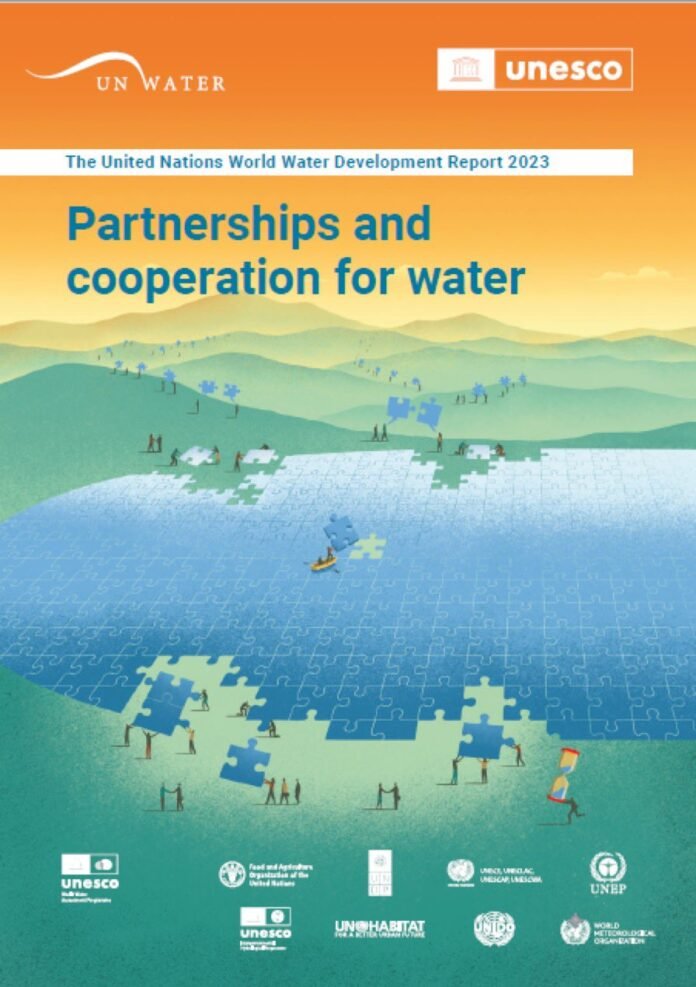NEW YORK, MARCH 22 – Water starts wars, puts out fires, and is key to human survival, but ensuring access for all hinges largely on improving cooperation, according to a new flagship UN report published on Tuesday.
At current rates of progress, Sustainable Development Goal (SDG) 6 – water and sanitation for all – will not be achieved by 2030. Accelerated implementation is needed, which depends on the capacity of the world’s organizations and institutions to come together in partnerships and cooperation to rapidly speed up progress.
The UN WWDR reviews how the water and sanitation community can cooperate more effectively within itself and with other sectors and realms of decision-making where water is critical for progress, such as health, education, climate change and gender equality.
Richard Connor, the report’s editor-in-chief, told reporters at a press conference at UN Headquarters ahead of the launch that “uncertainties are increasing”.
“If we don’t address it, there definitely will be a global crisis,” he said, pointing to rising scarcity that reflects reduced availability and increased demand, from urban and industrial growth to agriculture, which alone consumes 70 per cent of the world’s supply.
Building partnerships and cooperation are key to realizing human rights to water and overcoming existing challenges, he said. Explaining the landscape of such shortages, he said economic water scarcity is a big problem, where governments fail to provide safe access, such as in the middle of Africa, where water flows. Meanwhile, physical scarcity is worst in desert areas, including northern India and through the Middle East.
Answering reporters’ questions about possible “water wars” in the face of a global crisis, Mr. Connor said the essential natural resource “tends to lead to peace and cooperation rather than to conflict”.
Strengthening transboundary cooperation is the main tool to avoid conflict and escalating tensions, he said, noting that 153 countries share nearly 900 rivers, lakes and aquifer systems, and more than half having signed agreements. (@OnuItalia)

